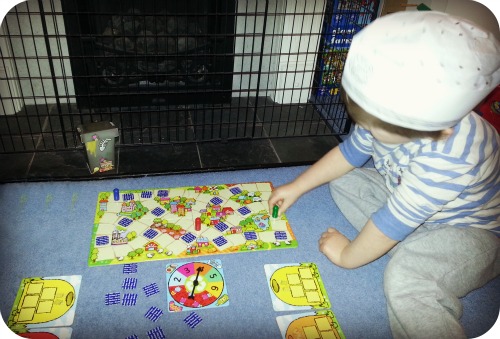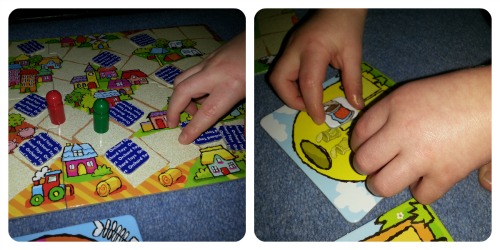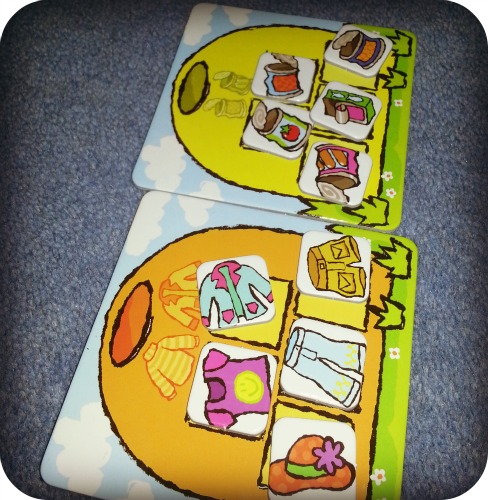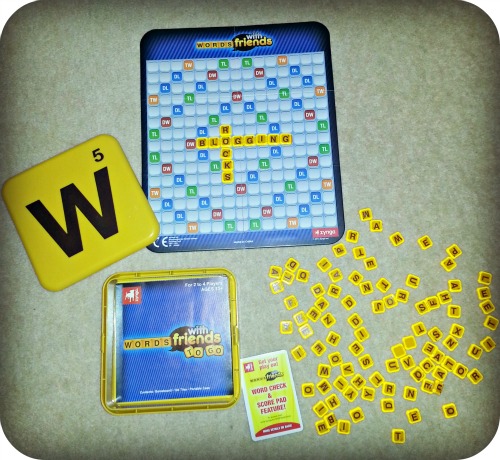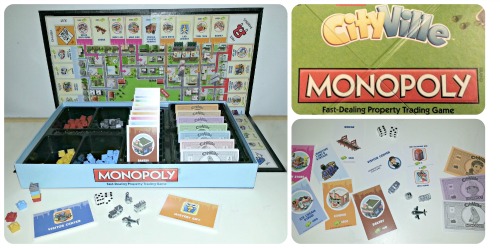One of the first games I reviewed with Orchard Toys was Red Dog, Blue Dog which is a simple bingo game for 2-5 year old children. It was a great introduction to colours and really helped to consolidate the skill of recognising and matching shapes and colours. The Boy still loves playing with it, but as he's now reaching the upper age group for it I felt that he needed another level of bingo, something that would challenge him a little more.
Orchard Toys sent me the next step up to try out with him; Monster Bingo. This is a shape and colour matching bingo game with the appealing aspect of the shapes designed as friendly monsters.
The game comprises of:
- 4 double sided bingo boards, each with 16 spaces
- a colour dice and a shape dice
- 36 coloured shape cards
- 64 slime cards
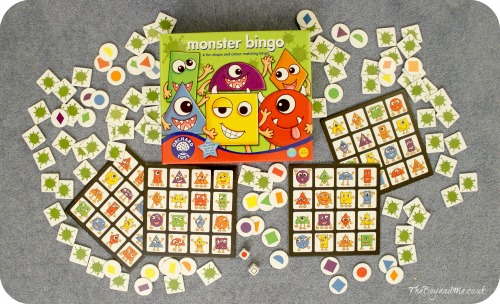
There are two ways to play this game;
- For younger players:
- Each player chooses a board, the colour shape cards are placed face down on the table and the slime cards are placed within each reach of the players.
- Players take it in turns to turn over a colour shape card and everyone checks to see if it matches on their own board, covering it with a slime card if it does. The colour shape card it left on the table face up (to show it's already been played; we actually placed these to the side so as not to confuse matters).
- The winner is the first person to get four in a row, either horizontally, vertically or diagonally.
- For older players:
- Each players chooses a board, the colour shape cards are placed face up on the table so they can be seen (we actually placed them in a grid so all the same colour cards went along a column, and all the same shapes cards went along a row; it made it easier to locate them), the slime cards are left in a pile in easy reach of all players.
- Each player takes it in turn to roll the two dice and locate the right card (matching it to the dice) and then everyone can cover it on their board if they have it.
- Again the winner is the first person to get four in a row, as above.
The first style of game was more straightforward for The Boy to play, it also had the element of surprise from turning the cards over and not knowing what would be picked up. This way could be used to extend the game by each player having to wait their turn before they can place a slime card on their board, it would bring in the element of a memory game then.
The second style of game was more of a challenge for The Boy, and it lasted slightly longer as well. We all enjoyed playing this one, and it was a good learning opportunity. My husband and I were bantering about his pronounciation of the word 'diamond' and The Boy interjected to tell us it could also be called a rhombus and that it was his turn!
Of course at the end of the game, the winner must shout 'Monster Bingo' in true bingo style, with as much enthusiasm as they can muster!
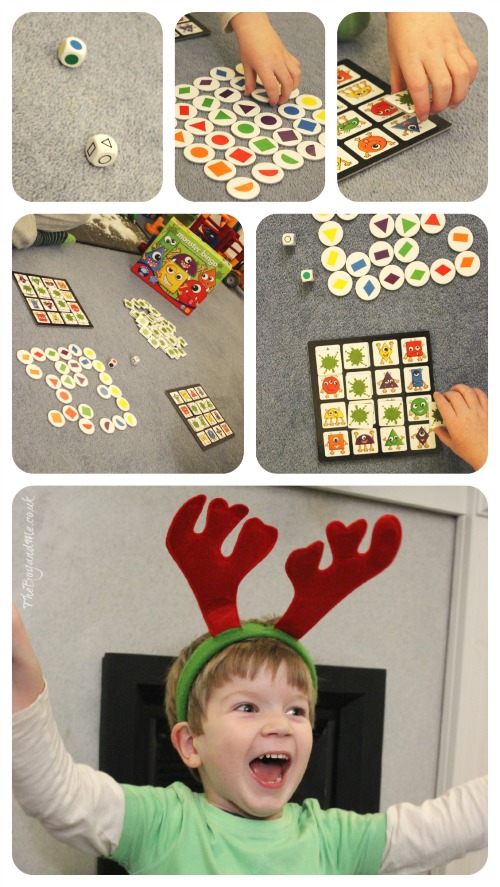
As usual, Orchard Toys publishes an educational guide to show the learning potential of their products. Monster Bingo is good for:
- developing colour and shape matching skills (mathematical development);
- encouraging social interaction;
- developing observational skills (pre-reading development);
- links with Early Learning Goals.
Monster Bingo is available from Orchard Toys and all good high-street toy shops for £9.50.
We were sent this product for the purpose of this review, my opinion is honest and unbiased.
